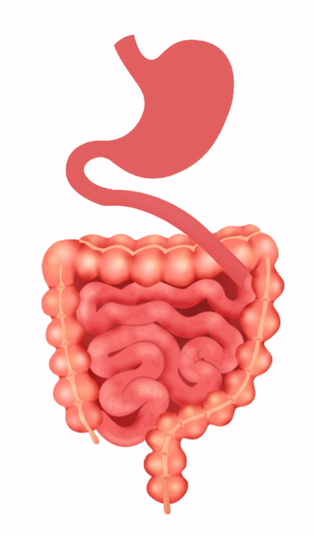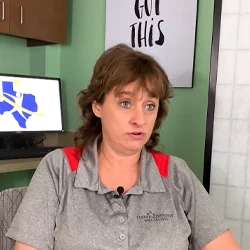Single Intestinal Pylorus Sparing Duodenal Switch (SIPS) - Dallas, Fort Worth, Mansfield & Plano
- Home
- Weight Loss Surgery
- Single Intestinal Pylorus Sparing Duodenal Switch (SIPS)

How SIPS Procedure Works
The SIPS Procedure is much like Sleeve Gastrectomy Surgery that involves removing the stretchy upper and outer 85 percent of the stomach, and what is left is a small, tube-shaped stomach. The procedure reduces the capacity of the stomach more than in sleeve gastrectomy to roughly 4-6 ounces (120-180 ml). This results in patients feeling full after consuming smaller portions of food (4-6 ounces).
- First, the size of the stomach is reduced
- Second, the duodenum is separated from the remaining tract just below the pyloric valve. A loop of the small intestine measuring approximately 300 cm from the terminal ileum is connected to the stomach. This allows for the absorption of nutrients and vitamins as well as fewer bowel movements when compared with a duodenal switch.
Benefits of the SIPS Procedure
- Higher resolution of diabetes.
- Less fluctuations in blood sugar when compared with gastric bypass.
- Greater weight loss compared with VSG or RYGB.
- Lower complications.
- Lower rates of ulcers, strictures, and small bowel obstruction.
Potential risks include nutritional deficiency and the possibility of reflux of both bile and acid. Talk to a Surgeon Today
- Procedure
- Post-Op Care
- Risks & Complications
The placement of Orbera Gastric Balloon into the stomach is a simple, non-surgical outpatient procedure. First, a diagnostic test is done to make sure it is safe to perform the procedure. Then the deflated gastric balloon is inserted through the esophagus and into the stomach. Once it is in position, the balloon is inflated with saline and a dye, to maintain the required size. The procedure takes about 15 minutes to complete. The balloon is temporarily left in the stomach for about 6 months.
After the procedure, you may experience some cramps and nausea, as your stomach adjusts. Your throat may feel a little sore. You’ll follow a liquid or soft diet for a few weeks and followed by 6 months of a supervised diet plan. Our team will continue working closely with you during these 6 months.
As with any other procedure, Gastric balloon procedure involves certain risks and complications:
- Esophageal, gastric ulcers or perforation.
- Deflation of the balloon which can lead to blockage.
- Rupture of balloon dye (if used), which will be released in the urine.
Potential Disadvantages of SADI-S Procedure
Potential risks associated with the SADI-S Procedure are similar to those of any other bariatric procedure. These include:
- Anastomotic leaks
- Infection
- Bile reflux
- Intestinal perforation
- Venous thrombosis and pulmonary embolism
- Bowel obstruction in the long-term
- Abscess




